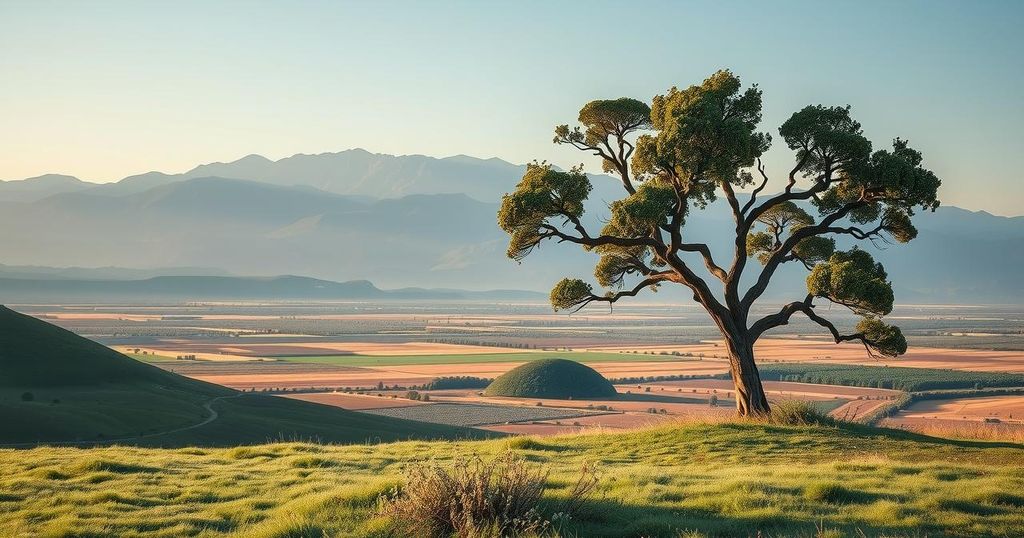President Felix Tshisekedi of the Democratic Republic of Congo has vowed to respond vigorously to the M23 rebel coalition’s advances in the eastern regions, particularly Goma. Despite the rebels claiming control, the government has not confirmed it, although tensions escalate with accusations against Rwanda. The situation raises concerns over negotiations versus potential military conflict.
Democratic Republic of Congo President Felix Tshisekedi has pledged a resolute and unified response to the advancing rebel alliance, M23, which has encroached on various regions in the mineral-rich eastern part of the country, leading to the surrender of numerous local troops. In an assertive televised address, Tshisekedi affirmed that the nation would not be subjected to humiliation or conquest amid ongoing pressures for negotiations with the insurgents.
The city of Goma, located in eastern Congo’s North Kivu province, reportedly fell into the hands of the M23 rebel coalition on Monday, although the Congolese government has yet to validate this claim. Local reports indicate that besides Goma, the M23 is strategically advancing towards South Kivu, having taken control of several towns in the province.
Accusations have arisen against Rwanda, alleging its support in equipping the M23 rebel group with arms and military personnel. While Rwanda acknowledges these claims, it has criticized the Congolese government for its association with a Hutu militia group in opposition to the primarily Tutsi M23 faction, a successor of the CNDP.
During a recent meeting involving East African leaders, Tshisekedi was notably absent as they sought to address the ongoing crisis through dialogue with various stakeholders, including the M23. Among the participants, Rwandan President Paul Kagame emphasized that sustainable peace requires engagement from all parties and a comprehensive understanding of the conflict’s context.
The fighting in Goma has resulted in casualties, including foreign peacekeepers, with numerous injuries reported as Congolese forces strive to regain control. Witnesses have indicated that the M23 has disarmed many government troops, and claims regarding foreign mercenaries assisting the Congolese army have surfaced, with Rwanda indicating it has facilitated the surrender of Romanian mercenaries helping DRC forces.
Analysts suggest that the current unrest could foster one of two scenarios: either the M23 and Rwandan forces controlling Goma will compel the Congolese government and regional allies to negotiate, or, conversely, Kinshasa may resort to military tactics, potentially escalating conflict through attempts to reclaim Goma and launch cross-border offensives into Rwanda. Previous threats from Tshisekedi toward Rwanda have been met with firm responses from President Kagame, asserting readiness for military action if necessary.
The ongoing conflict in the eastern Democratic Republic of Congo is deeply entwined with historical ethnic tensions and regional dynamics. The M23 rebel group, comprised largely of Tutsi fighters, has roots in the aftermath of the 1994 Rwandan genocide, which has shaped the political and military landscape in the region. The current escalation, marked by territorial gains in strategic areas like Goma, has raised concerns over national sovereignty and international intervention amid allegations of external support from neighboring Rwanda.
President Tshisekedi remains steadfast in his commitment to resist the advances of rebel groups like M23, asserting national dignity in the face of conflict. As the situation unfolds, the potential for dialogue or military confrontation looms over the region, leading to critical implications for Congo’s stability and relations with Rwanda. Ongoing international scrutiny highlights the urgency of a resolution to prevent further humanitarian crises and regional instability.
Original Source: www.cnn.com






